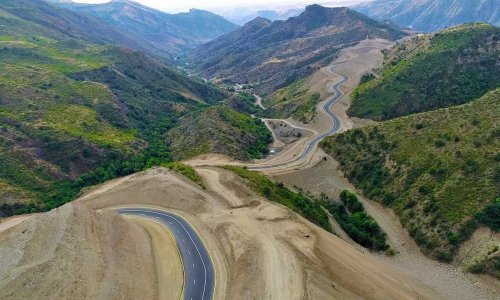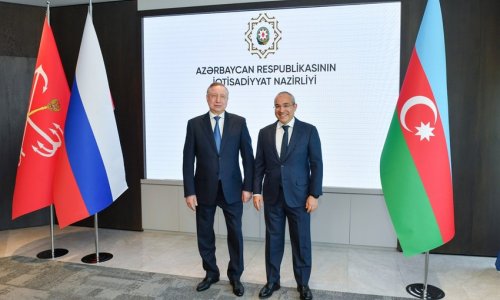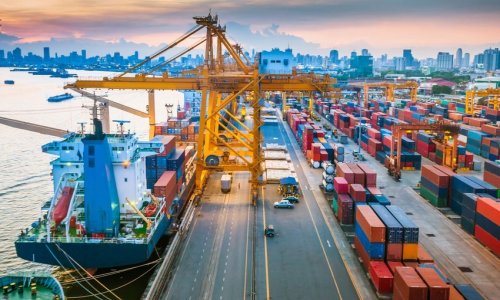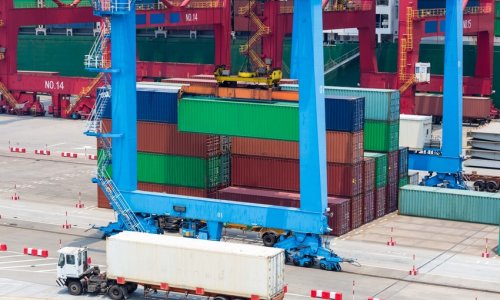I have already tweeted my personal conclusion to the forum: A missed opportunity to start a dialogue on real change. It had an overloaded agenda and too many corporate executives with no idea what they were supposed to be doing besides seeing clients and drumming up business.I don't mean there should be fewer participants. WEF constantly reminds me the number is steady, at around 2,500. But there are now so many advisers, spokesmen and assistants who attend, that 2,500 is multiplied many times. Access is more difficult, honesty becomes harder. To quote the musical Mary Poppins, it's "a ghastly mess."It'll always need the Big Star. This year's was Iran President Hassan Rouhani who said nothing new, but in a very engaging way. There is nothing wrong with a Las Vegas-style headliner to draw 'em in. It's the other "stuff" that gets in the way. Keep it Simple.The symptoms are everywhere.Walking along the Promenade, I was horrified with the numbers of Audis, BMWs, and Mercedes causing a massive traffic jam. Limos are fine for prime ministers or presidents who need the security, but there's no need for CEOs or executive to have one as a status symbol. The WEF provides an excellent shuttle service.If Iceland's president Olafur Ragnar Grimsson and his wife can walk, chatting with all on the way, CEOs can too. Getting away from the corporate bubble and sycophancy is the joy of Davos.WEF should restrict the number of passes for limos in the parking lots. They need to Keep it Simple.Onto the theme itself. If any Quest Means Business writers delivered such verbose language I would send back the script. This year's theme had merit, if anyone could get through work their way through the Davosian language. Keep it Simple!Finally, the panels. There are too many and the format is tired. The subjects, like the theme, are often esoteric and obscure. The New Healthcare Context, Rewiring the Brain, Big History for Big Picture Thinking.These may raise interesting points, but they are just a laundry list of jargon. The Davos panel is a tired way of engaging in debate. Surely it is not beyond the wit of WEF to change. Oh, and, Keep it Simple.I realise it is de rigueur to criticize Davos. Those of us who have attended for years will nostalgically claim "it's not as good as it used to be." That's not what I am saying.The event serves a very real purpose, allowing people to think, discuss, ponder and connect. But only if it strips back the hoopla and hullaballoo and gets back to basics -- reshaping itself to accommodate new ways of doing business, not just exhorting us to do it in the real world.Does this mean that my colleague Nina dos Santos won the debate we had over whether Davos can help solve inequality? Absolutely not. Davos is still exactly the right place to raise such issues; it's where the decision makers come to hear the arguments and ponder the possibilities.So, Davos, I will be back next year (if you invite me) but I suggest before you start urging us to reshape the world you look into your own soul and do a bit of reshaping yourself.NINA DOS SANTOS SAYS: In making a big push to talk about inequality, the World Economic Forum drew cries of derision from those present and absent from the Davos meetings this year."How can a bunch of billionaires truly understand the difference between privilege and poverty?" asked commentators including myself.Besides, doesn't discussing the wealth gap among world elites smack of hypocrisy? And what impetus would they really have to enact change, especially if the status quo should suit them just fine?Yet in tackling the thorny issue -- if arguably years too late -- 2014's event did a good job of breaking down today's disparities and examining them from a variety of angles.Because we should remember that inequality comes in many guises: From health to access to education, water and food.And then there is there's the glass ceiling, which reared its ugly head in this year's WEF demographics as it emerged only 15% of participants were women today versus 17% in 2011.Facebook COO Sheryl Sandberg bemoaned the persistence of discrimination in the workplace, alongside Christine Lagarde, the first female managing director of the International Monetary Fund.While Anne-Marie Slaughter, head of the New America Foundation, was keen to remind me it's not just the number of women in positions of power that count, it's their ability to have the confidence to speak up that also matters.Another prominent female delegate was Gillian Tett, who moderated a panel on "The Shifting Middle" and explained how inequality had now broken free of its traditional emerging markets homeland and emerged as a new plague of the developed economies.The good news is that the collective conscience is finally starting to turn. But as usual, when it comes to concrete measures to fight what the WEF identifies as one of the world's biggest risks, the fur-swaddled Davos crowd is as flaky as the snow blanketing its plush pistes.John DefteriosJOHN DEFTERIOS SAYS: After nearly a quarter century of covering Davos, there is a simple formula I use to measure the top story here -- look at the "wow factor" when a leader passes through the main conference center floor. Davos 2014 belonged to Iranian President Hassan Rouhani.Rouhani marched down the staircase with an entourage of about 30 ministers, diplomats and security personnel. Then the "Davos Moment" kicked in. Chief executives, policy makers and young global leaders stopped their conversations and peered over to the leader clad in his white turban and black cloak. Silence overcame the floor as the pack passed by.The Iranian president spoke before the Davos crowd about a new foreign policy of moderation, but there are plenty who harbor reservations about the country's interim nuclear development agreement that eased sanctions for six months. U.S. Senator John McCain told me that Rouhani's comments about not giving up a single centrifuge could build momentum for another sanctions bill in Congress."If there are more comments like that and declarations on the part of the Iranians then I think you will see some impetus behind those sanctions which would override the objections of the President, (Obama)" he said in our interview.So this Davos benefited from being at the start of the six month agreement where policy makers and businessmen could sit face-to-face with the relatively new Iranian leadership.On the sidelines here, Rouhani reportedly held two separate meetings, one with chief executives of energy companies, the other with a wider array of business leaders from the consumer sector.The Iranian president already identified seven U.S. and European energy companies he would like to invite back. Iran is a big energy prize, with 157 billion barrels of proven reserves and the largest single gas field in the world. It's a market of 76 million consumers, so plenty of opportunity IF a final agreement can be reached.Skeptics abound and this is the beginning of a long and pot-holed filled diplomatic road which includes the influence Iran exercises over Syria.But Davos 2014 will be remembered where the six-month trial period began in earnest.(CNN)ANN.Az
The Davos which belonged to Rouhani, debated inequality
Business
18:40 | 28.01.2014
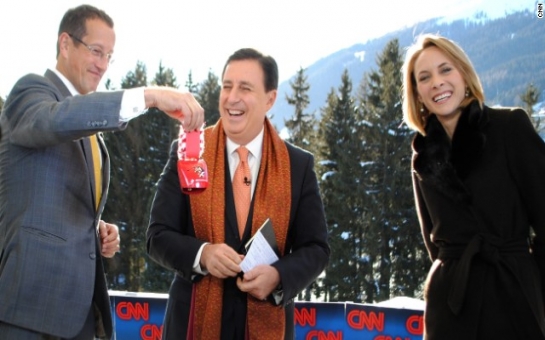
The Davos which belonged to Rouhani, debated inequality
RICHARD QUEST SAYS: As I headed down the mountainside after the World Economic Forum, it became clear: The theme, "Reshaping the World," should be attached to the event itself.
Follow us !

